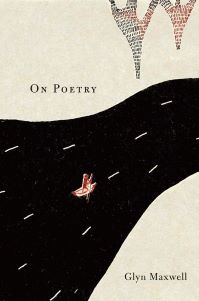Another short essay on friendship and craft.

Another Advent season is upon us, and all I can think is that memory is like walking pneumonia. Hear me out: The crackling at the top of the lungs, the wheeze, the chest heaving, and the stiff cough that won’t abate all feel like the wrestling we do to retain a perspective on the personal past.
Craft — insomuch as it’s a conversation with the past, an expression of the present, and a projection of the future — plays a role in the forming of perspectives about the past. Writers, after all, are often nerdy about the past. And digression. Anyway, what I really want to mention briefly is how certain meditations, certain events of late, have led me to believe more than ever in how much interpersonal relationships are involved in the formation of poetics.
Recently, I posted on Instagram, “How you treat people is your true poetics. How you treat others is how you will treat the reader.” Now, everyone can agree there have been some truly heinous people who’ve somehow managed to write excellent books, so I’m not suggesting that being kind to others will result in literary success or inventiveness on the page. I am suggesting, however, that the orientation towards language, syntax, and lyricism is informed by how one sees and interacts with other people.
One of the roles that poems play in your imagination is to renew your relationship with language. I arrived at that notion, in part, from reading Glyn Maxwell’s On Poetry, in which he argues that meeting a poem is like meeting a person in real life (his case study being Coleridge’s “The Rime of the Ancient Mariner”). If one can accept that premise, then the inverse might also be true: that our interactions with people are affecting how we create poems.
Over the past year, through spikes of covid, wild political swings, and a devastating election, I’ve also been thinking about my own visceral reactions to the ends of relationships, whether broken friendships, messy divorces, or family fallings-out. Alongside that thinking, I’ve been wondering why so many writers tell emerging writers to “guard their time” in a way that has become so reductive, I wonder if the expectation is that all young writers should be monks.
Now, certainly, I understand that the perception towards some starting out as creative writers is to assume they aren’t working hard enough, reading enough, writing enough — enough, enough, enough echoing like an antiphonal performance of absurdity. All those things may be true of the emerging writer, but what is lost in such hermitic suggestion?
If you must detach from the coffee dates and birthday parties, I understand. If you feel like you’ve never made “enough” time for yourself and your art, I get that, too. All I would ask is that you be open to the interpersonal interaction that often feeds your writing in ways that are amplifying.
Too often, in a particularly American hustle-culture way, we believe that a puritanical work ethic is what’s most important. But every seasoned writer knows that 10,000 hours, with all respect to Malcolm Gladwell, will not guarantee one paragraph of excellent writing. But one insightful conversation; one volta of confidence-building suggestion-giving in the hyping that friends do; one motivational inquiry that dissolves resistance; one moment of true joy can be worth 100,000 hours spent alone with only books, the blank page, and self-doubt.
This is why I think W.H. Auden was so insistent that you need both the library and peers who will argue with you (see his book The Dyer’s Hand if you’re interested). And while I’m on the record insisting that writers often give the worst advice about the general aspects of writing, let me venture one suggestion via Outkast. Everyone needs a friend, a true friend, who can tell you, even on your wedding day, “Keep your heart, 3 Stacks, keep your heart.”
Maybe this is all the poetics one needs.
Steven Leyva’s poetry collection is The Understudy’s Handbook.

